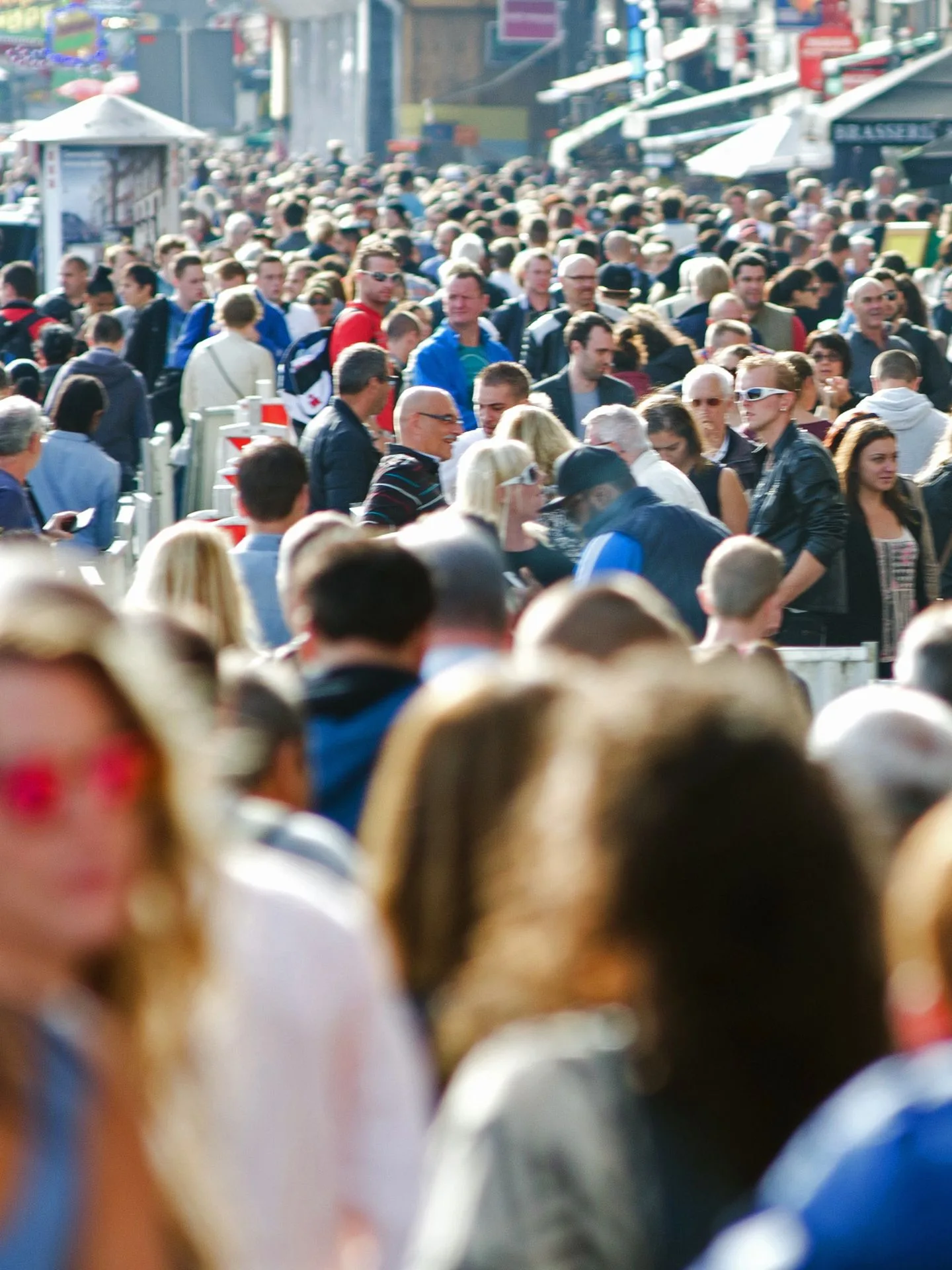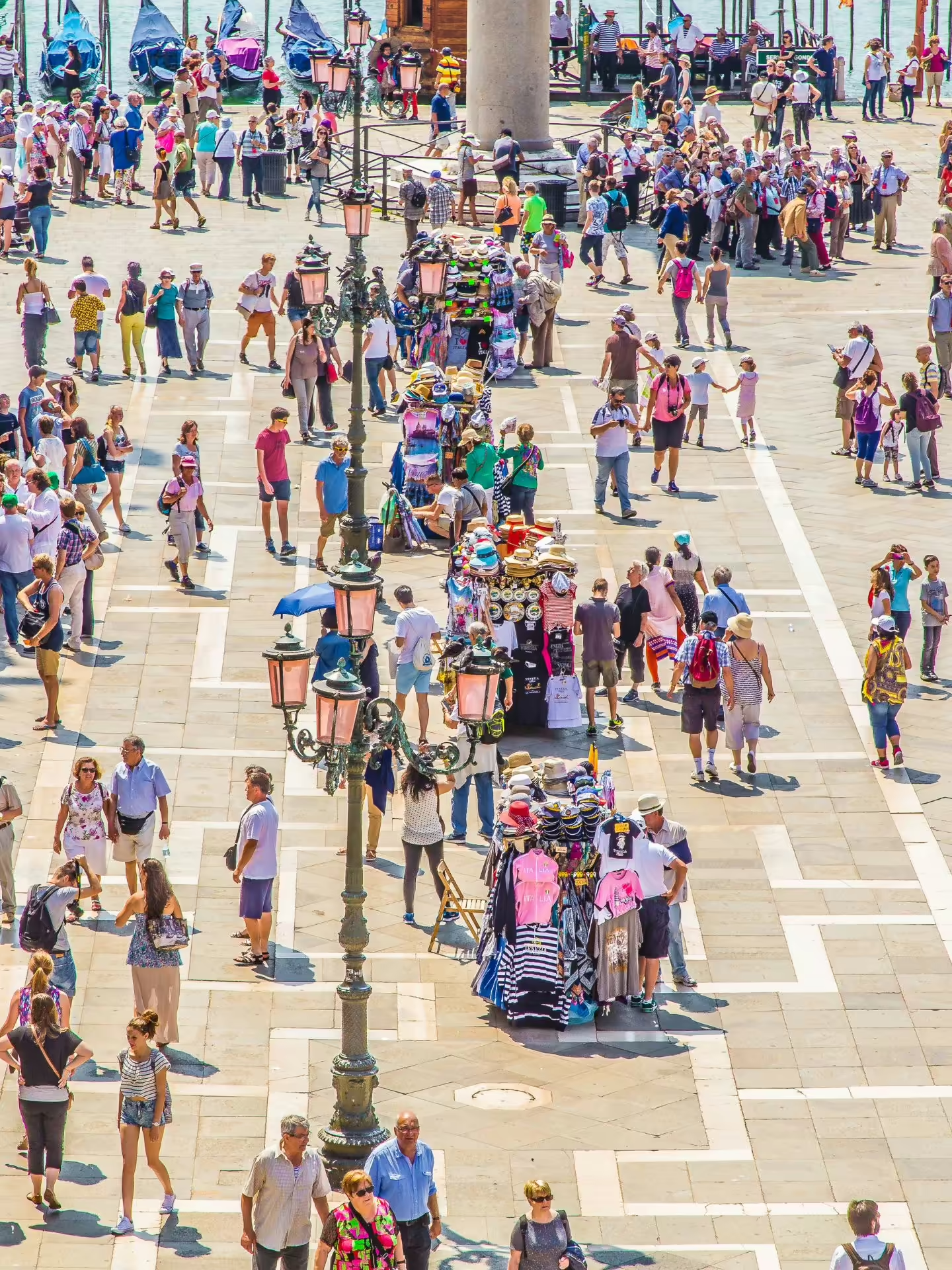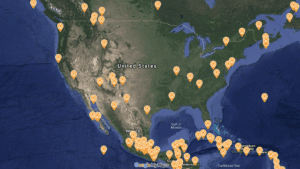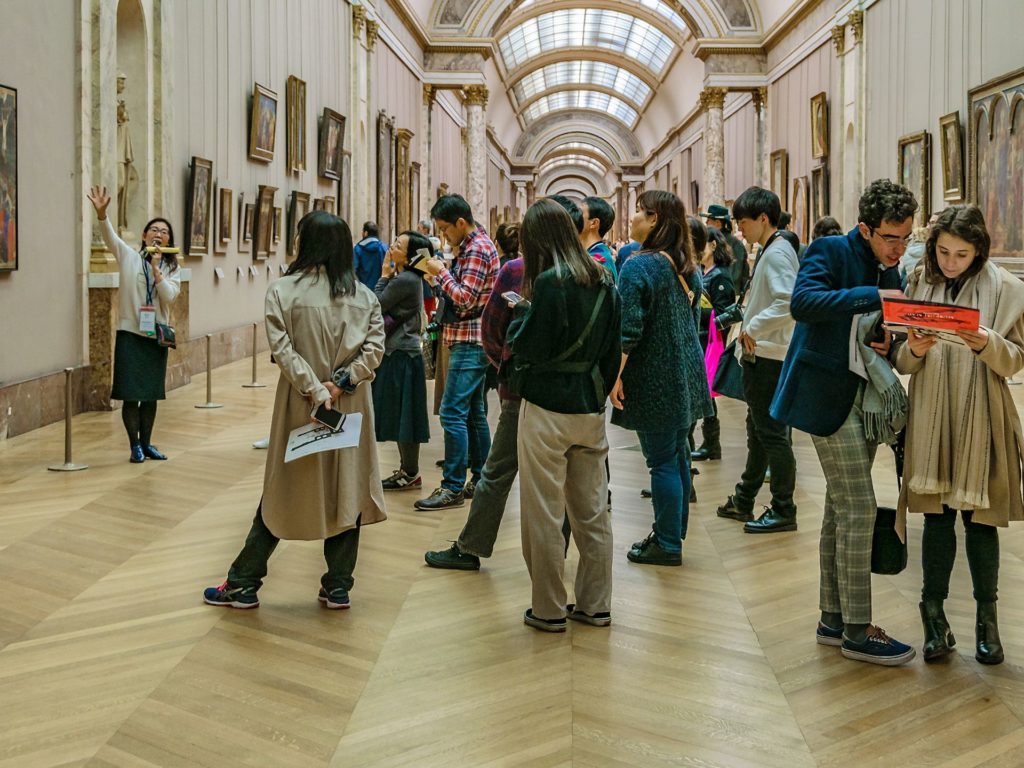
You’re in the middle of an amazing trip to Europe. You spent hours researching the best spots to hit and so far have managed to see everything on your list. Everywhere you go is overrun with tourists though. Disappointment sets in. Yes, it’s great to check all those places off your bucket list. But the whole experience feels a bit icky. Like you are just another cog in the machine of tourism that’s slowly ruining some of the most beautiful places on earth. This is overtourism.
What is overtourism?
Overtourism is the phenomenon of a tourist destination being overwhelmed by too many visitors. This influx of tourists can have negative consequences on both the environment and the locals who live there.
Some negative effects include pollution, littering, damage to historical sites, and displacement of locals. Overtourism can also lead to a rise in the prices of goods and services, as well as housing shortages. All of these factors have a negative impact on the quality of life for residents of tourist destinations.
Do your research before travel and combat overtourism
Make sure you know what the tourism impact is for the places you want to visit. If a destination is already struggling with overtourism, consider giving it a miss. There are plenty of other amazing places to see in the world that aren’t teetering on the brink of ruin.
Research can also help you plan your trip in a way that minimizes your impact. For example, if you know a destination is struggling with a housing crisis, you should book your stays in established hotels rather than short-term rentals.
Avoid destinations that are struggling with overtourism
By avoiding these places, you can help take the pressure off destinations that are struggling to cope with too many visitors.
There are a few ways to find out which destinations are struggling with overtourism. One way is to research news stories about tourist hotspots that have been in the headlines for all the wrong reasons. You can also look for destinations that have implemented tourism taxes or restrictions on visitors.
If you do visit a destination that’s struggling with overtourism, be respectful and try to leave as small a footprint as possible. That means disposing of your trash properly, not damaging historical sites, and being considerate of locals.
Minimize your impact
Even if a destination isn’t struggling with overtourism, it’s always a good idea to minimize your impact when you visit.
Try to avoid flying if possible, as air travel is one of the most polluting forms of transportation. If you do fly, offset your carbon emissions by planting trees or investing in other green initiatives.
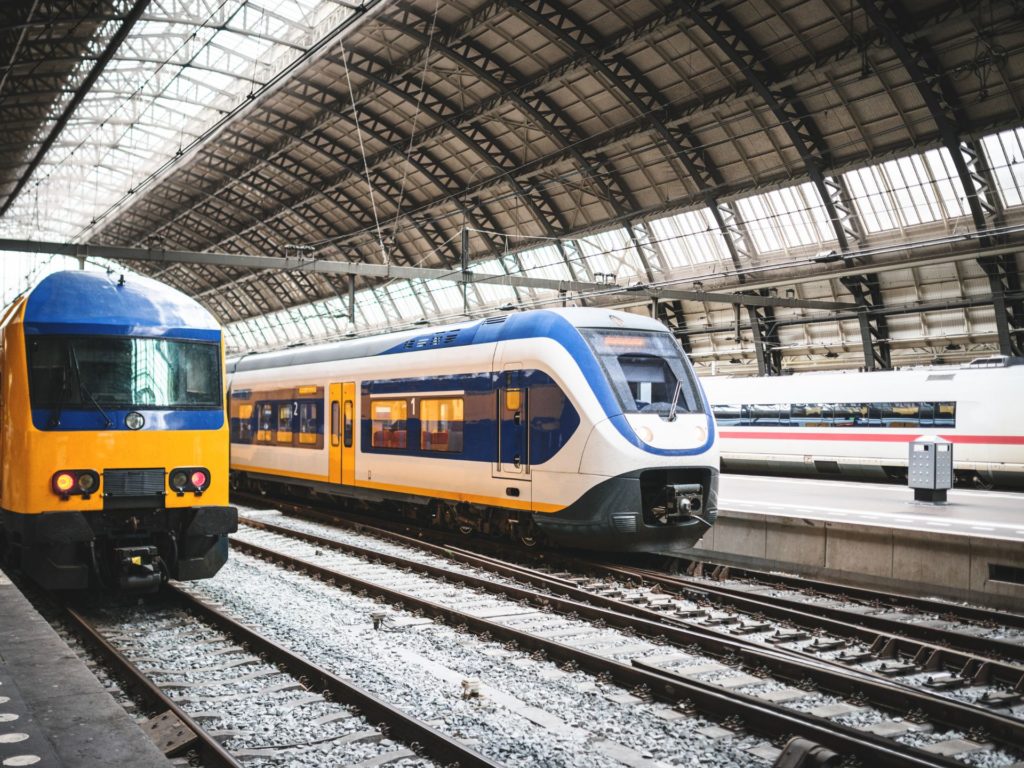
When you’re at your destination, avoid taking tours that involve animals or require you to buy souvenirs made from endangered species. Stick to public transportation instead of renting a car, and make an effort to eat local food.
Learn about the culture and customs of a destination
One of the best ways to avoid causing offense or unintentionally damaging a destination is to learn about the culture and customs before you visit. This way, you can make sure you’re respecting local traditions and not inadvertently doing something that’s considered offensive.
If you take the time to learn about a destination before you visit, you’ll also have a more authentic and enjoyable experience. You’ll be able to avoid the worst tourist traps and see the places that locals love.
Visit during off-peak times
One of the best ways to not contribute to overtourism is to visit during off-peak times. The off-peak times for popular destinations vary depending on the location but in general, you should avoid visiting during holidays and the summer months. Some popular destinations have shoulder seasons, which are times of the year when tourism is slow but the weather is still pleasant. Shoulder seasons are a great time to visit as you’ll enjoy good weather without the crowds. Not only will you have a better experience because there will be fewer crowds, but you’ll also be helping to reduce the negative impact of tourism.
Advantage of off-peak travel
Off-peak travel has several advantages. First, you’ll avoid the crowds that can make tourist destinations feel like a hot mess. This means you’ll be able to enjoy your trip more and won’t have to contend with the stifling crowds.
Second, visiting during off-peak times is usually cheaper. This is because hotels and airlines typically offer discounts during slow periods. You can use the money you save to offset your carbon emissions or donate to a local charity.
Finally, by visiting during off-peak times, you’ll be helping to reduce the negative impact of tourism. This is because destinations won’t be as overwhelmed and will have an easier time accommodating visitors.
When travel during off-peak times isn’t possible
If you can’t avoid visiting during peak season, there are still ways to minimize your impact. One is to avoid taking tours or participating in activities that contribute to overtourism. Another option is to book your trip through a sustainable tourism company. These companies focus on reducing the negative impact of tourism and often work with local communities to ensure that visitors have a positive experience.
Read: How to reduce your environmental impact while traveling
Support local businesses when you travel
Another way to reduce your impact when you travel is to support local businesses. This means avoiding big chain hotels and restaurants and instead opting for small, locally-owned businesses.
When you support local businesses, you’re helping to keep money in the community and boosting the local economy. You’re also more likely to have a unique and authentic experience. And, in many cases, you’ll be able to find more sustainable and eco-friendly options.
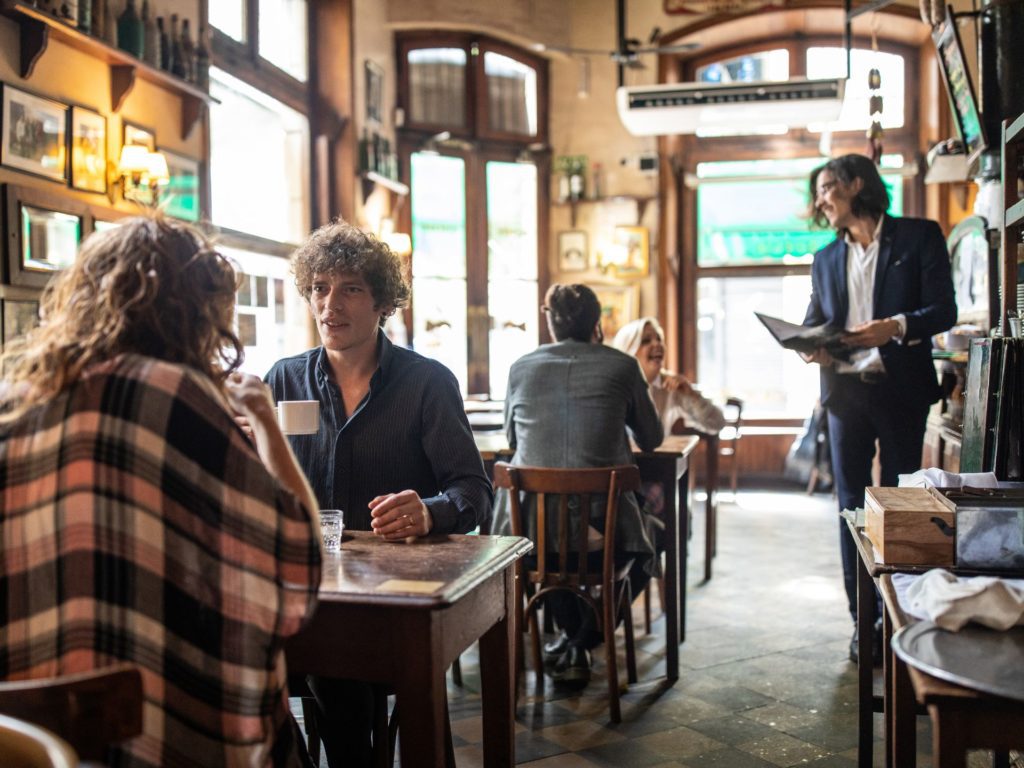
There are a few ways to find local businesses when you travel. One is to ask locals for recommendations. Another option is to use local city-guide directories or search engines that focus on locally-owned businesses.
If you’re struggling to find local businesses, look for accommodations that are owned by locals or seek out restaurants that use locally-sourced ingredients. Finally, you can participate in activities that support the local community, such as taking a walking tour or visiting a farmers market.
Be mindful of your impact on the environment
When you travel, it’s important to be mindful of your impact on the environment. This means taking steps to offset your carbon emissions and avoiding activities that damage delicate ecosystems.
How to offset your carbon emissions when you travel
One way to offset your carbon emissions is by donating to a carbon offsetting program or investing in renewable energy. Another way to be more environmentally friendly is to choose sustainable options when you travel. This includes things like taking public transportation, staying in eco-friendly accommodations and eating locally-sourced food.
Reduce your consumption of plastic when you travel
While home and abroad, be mindful of your impact on the environment. This means taking steps to reduce your consumption of plastic. One way to cut back on plastic is to avoid using single-use plastics, such as straws, water bottles, and plastic bags. Replace these disposable items with your own reusable ones, such as a reusable water bottle or shopping bag. You can also look for environmentally-friendly alternatives to plastic, such as bamboo straws and biodegradable storage bags.
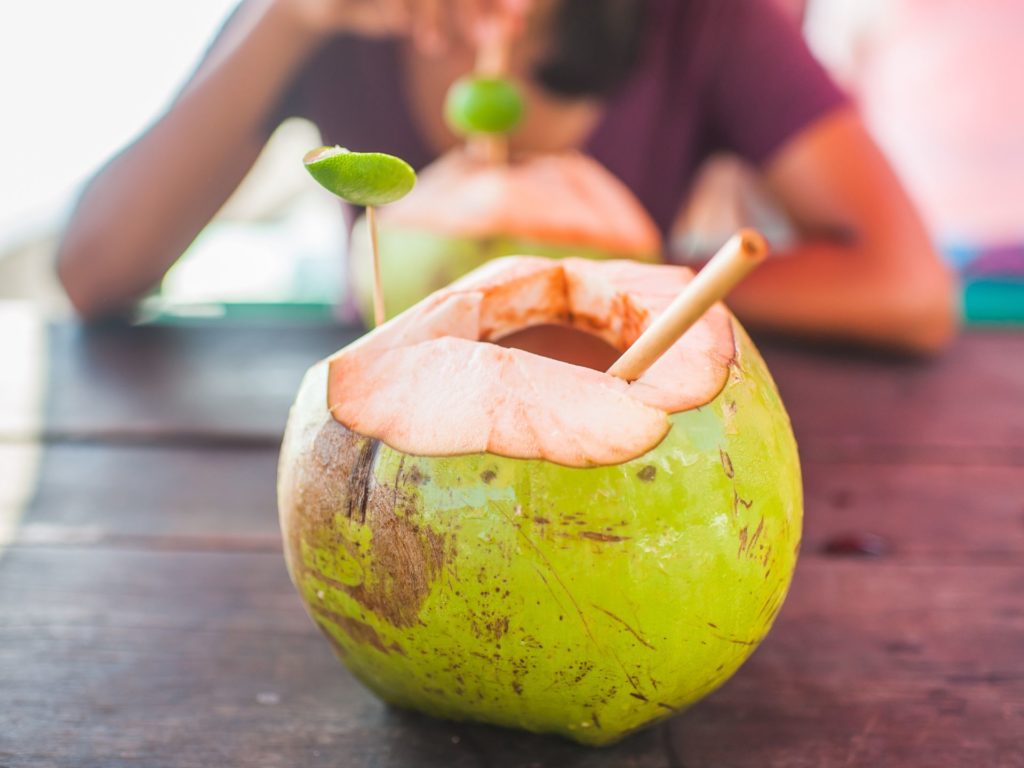
Respect wildlife and natural habitats
Respecting wildlife means avoiding activities that disturb or damage these areas, such as off-roading or hiking off-trail. Supporting businesses that are environmentally responsible and have a positive impact on the local community. You can also participate in activities that help conserve natural habitats, such as volunteering for a beach cleanup or planting trees.
Be considerate of local cultures and customs
It’s important to be considerate of local cultures and customs when you travel. This means being respectful of religious beliefs and dress codes, avoiding taking photos of people without their permission, and being aware of your body language. Additionally, it’s important to research the local culture before you travel so that you can avoid unintentionally offending someone. You can also show your respect by learning a few key phrases in the local language.
Respect religious beliefs and dress codes
When you travel, be respectful of religious beliefs and dress codes. This means avoiding activities that could be offensive, such as wearing inappropriate clothing and sometimes taking photos of or inside religious buildings without permission. Additionally, it’s important to research the local culture before you travel so that you can avoid unintentionally offending someone.
Avoid taking photos of people without their permission
Taking photos of people without their permission can be offensive and intrusive. If you want to take a photo of someone, it’s important to ask for permission first. Additionally, you should be aware of your body language and avoid invading someone’s personal space.
Learn about the local culture before you travel
Researching the local culture before you travel can help you avoid unintentionally offending someone. It’s also a good way to learn about the customs and traditions of the place you’re visiting. This can help you make the most of your trip and have a more authentic experience.

One way to learn about the local culture before you travel is to read books or articles about the place you’re visiting. Another option is to talk to people who have been there before. You can also look for websites and blogs that provide information about the local culture.
Show your respect by learning a few key phrases in the local language
Learning a few key phrases can help you communicate with people and avoid offending them. Additionally, it’s a good way to make new friends and connect with the local community.
Some key phrases you might want to learn include:
-Hello
-Goodbye
-Please
-Thank you
-I’m sorry
FAQ
- What is overtourism?
Overtourism is the phenomenon of a tourist destination being overwhelmed by too many visitors. - What are some negative effects of over-tourism?
Some negative effects of over-tourism include pollution, littering, damage to historical sites, and disrespect for local cultures and customs. - How can I avoid contributing to the problem of over-tourism?
There are a few things you can do to avoid contributing to the problem of over-tourism. One is to be aware of your impact when you travel and try to reduce your footprint. Another option is to support businesses that are environmentally responsible and have a positive impact on the local community. Finally, you can show your respect for local cultures by learning a few key phrases in the local language. - What are some things I can do to be more respectful of local cultures when I travel?
Some things you can do to be more respectful of local cultures when you travel include: being considerate of religious beliefs and dress codes, avoiding taking photos of people without their permission, and researching the local culture before you travel. - How can I learn more about the local culture before I travel?
There are a few ways you can learn about the local culture before you travel. One is to read books or articles about the place you’re visiting. Another option is to talk to people who have been there before. You can also look for websites and blogs that provide information about the local culture. - How can I show my respect for the local culture when I travel?
One way to show your respect for the local culture is to learn a few key phrases in the local language. This can help you communicate with people and avoid offending them. Additionally, it’s a good way to make new friends and connect with the local community. Some key phrases you might want to learn include: hello, goodbye, please, thank you, and I’m sorry. - What are some things I should avoid doing when I travel?
Some things you should avoid doing when you travel include: littering, damaging historical sites, and disrespecting local cultures and customs. - What is the best way to avoid over-tourism when traveling?
The best way to avoid over-tourism when traveling is to be aware of your impact on the destination you’re visiting. Try to reduce your footprint by doing things like using public transportation, avoiding single-use plastics, and supporting businesses that are environmentally responsible.

